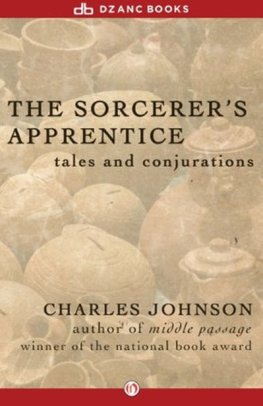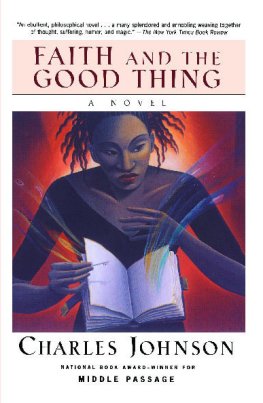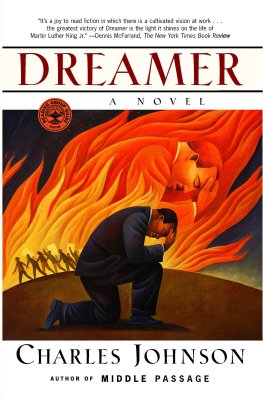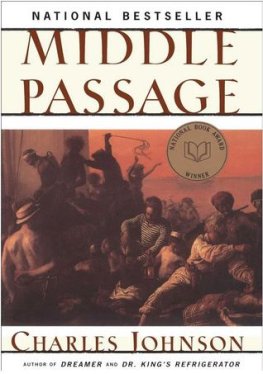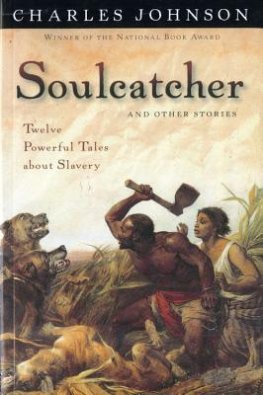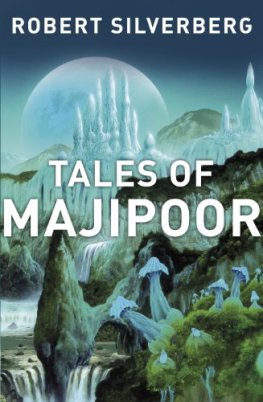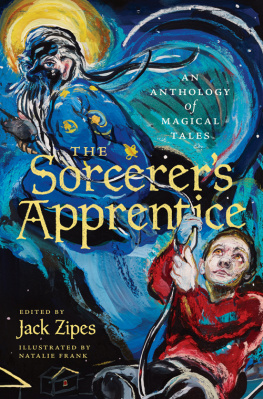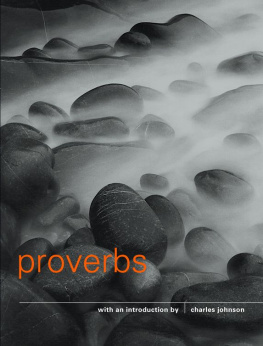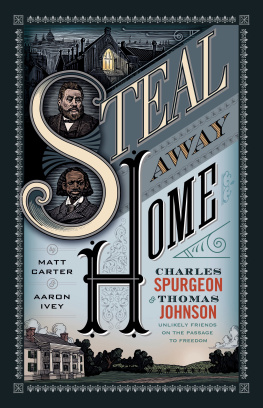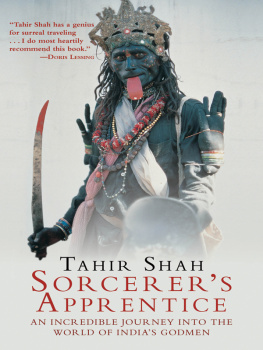Charles Johnson - Sorcerer's Apprentice
Here you can read online Charles Johnson - Sorcerer's Apprentice full text of the book (entire story) in english for free. Download pdf and epub, get meaning, cover and reviews about this ebook. year: 2014, publisher: Dzanc Books, genre: Prose. Description of the work, (preface) as well as reviews are available. Best literature library LitArk.com created for fans of good reading and offers a wide selection of genres:
Romance novel
Science fiction
Adventure
Detective
Science
History
Home and family
Prose
Art
Politics
Computer
Non-fiction
Religion
Business
Children
Humor
Choose a favorite category and find really read worthwhile books. Enjoy immersion in the world of imagination, feel the emotions of the characters or learn something new for yourself, make an fascinating discovery.
- Book:Sorcerer's Apprentice
- Author:
- Publisher:Dzanc Books
- Genre:
- Year:2014
- Rating:3 / 5
- Favourites:Add to favourites
- Your mark:
- 60
- 1
- 2
- 3
- 4
- 5
Sorcerer's Apprentice: summary, description and annotation
We offer to read an annotation, description, summary or preface (depends on what the author of the book "Sorcerer's Apprentice" wrote himself). If you haven't found the necessary information about the book — write in the comments, we will try to find it.
Sorcerer's Apprentice — read online for free the complete book (whole text) full work
Below is the text of the book, divided by pages. System saving the place of the last page read, allows you to conveniently read the book "Sorcerer's Apprentice" online for free, without having to search again every time where you left off. Put a bookmark, and you can go to the page where you finished reading at any time.
Font size:
Interval:
Bookmark:
Charles Johnson
Sorcerer's Apprentice
FOR MY FATHER
It is with fiction as with religion; it should present
another world, and yet one to which we feel the tie.
Herman Melville, The Confidence Man, Chapter XXIIITHE EDUCATION OF MINGO
Once, when Moses Green took his one-horse rig into town on auction day, he returned to his farm with a bondsman named Mingo. He came early in a homespun suit, stayed through the sale of fifteen slaves, and paid for Mingo in Mexican coin. A monkeylike old man, never married, with tangled hair, ginger-colored whiskers like broomstraw, and a narrow knot of a face, Moses, without children, without kinfolk, who seldom washed because he lived alone on sixty acres in southern Illinois, felt the need for a field hand and helpmate a friend, to speak the truth plainly.
Riding home over sumps and mudholes into backcountry imprecise yet startlingly vivid in spots as though he were hurtling headlong into a rigid New Testament parable, Moses chewed tobacco on that side of his mouth that still had good teeth and kept his eyes on the road and ears of the Appaloosa in front of his rig; he chattered mechanically to the boy, who wore tow-linen trousers a size too small, a straw hat, no shirt, and shoes repaired with wire. Moses judged him to be twenty. He was the youngest son of the reigning king of the Allmuseri, a tribe of wizards, according to the auctioneer, but they lied anyways, or so thought Moses, like abolitionists and Red Indians; in fact, for Moses Greens money nearly everybody in the New World from Anabaptists to Whigs was an outrageous liar and twisted the truth (as Moses saw it) until nothing was clear anymore. He was a dark boy. A wild, marshy-looking boy. His breastbone was broad as a barrel; he had thick hands that fell away from his wrists like weights and, on his sharp cheeks, a crescent motif. Mingo, Moses said in a voice like gravel scrunching under a shoe, you like rabbit? Thats what I fixed for tonight. Fresh rabbit, sweet taters, and cornbread. Got hominy made from Indian corn on the fire, too. Good eatings, eh? Then he remembered that Mingo spoke no English, and he gave the boy a friendly thump on his thigh. S all right. Im going to school you myself. Teach you everything I know, son, which aint so joe-fired much just common sense but its bettern not knowing nothing, aint it? Moses laughed till he shook; he liked to laugh and let his hair down whenever he could. Mingo, seeing his strangely unfiled teeth, laughed, too, but his sounded like barking. It made Moses jump a foot. He swung round his head and squinted. Reckon Id better teach you how to laugh, too. That half grunt, half whinny you just madell give a body heart failure, son. He screwed up his lips. You sure got a lot to learn.
Now Moses Green was not a man for doing things halfway. Education, as he dimly understood it, was as serious as a heart attack. You had to have a model, a good Christian gentleman like Moses himself, to wash a Moor white in a single generation. As he taught Mingo farming and table etiquette, ciphering with knotted string, and how to cook ashcakes, Moses constantly revised himself. He tried not to cuss, although any mention of Martin Van Buren or Free-Soilers made his stomach chew itself; or sop cornbread in his coffee; or pick his nose at public market. Moses, policing all his gestures, standing the boy behind his eyes, even took to drinking gin from a paper sack so Mingo couldnt see it. He felt, late at night when he looked down at Mingo snoring loudly on his corn-shuck mattress, now like a father, now like an artist fingering something fine and noble from a rude chump of foreign clay. It was like aiming a shotgun at the whole world through the African, blasting away all that Moses, according to his lights, tagged evil, and cultivating the good; like standing, you might say, on the sixth day, feet planted wide, trousers hitched, and remaking the world so it looked more familiar. But sometimes it scared him. He had to make sense of things for Mingos sake. Suppose there was lightning dithering in dark clouds overhead? Did that mean rain? Or the Devil whaling his wife? Or you couldnt waffle on a thing like that. Rain, said Moses, solemn, scratching his neck. For sure, its a storm. Electricity, Mingo. He made it a point to despoil meanings with care, chosing the ones that made the most common sense.
Slowly, Mingo got the hang of farm life, as Moses saw it patience, grit, hard work, and prayerful silence, which wasnt easy, Moses knew, because everything about him and the African was as different as night and day, even what idealistic philosophers of his time called structures of intentional consciousness (not that Moses Green called it that, being a man for whom nothing was more absolute than an ax handle, or the weight of a plow in his hands, but he knew sure enough they didnt see things quite the same way). Mingos education, to put it plainly, involved the evaporation of one coherent, consistent, complete universe and the embracing of another one alien, contradictory, strange.
Slowly, Mingo conquered knife and spoon, then language. He picked up the old mans family name. Gradually, he learned soaking them up like a sponge Mosess gestures and idiosyncratic body language. (Maybe too well, for Moses Green had a milk leg that needed lancing and hobbled, favoring his right knee; so did Mingo, though he was strong as an ox. His ts had a reedy twang like the quiver of a ukulele string; so did Mingos.) That African, Moses saw inside a year, was exactly the product of his own way of seeing, as much one of his products and judgments as his choice of tobacco; was, in a sense that both pleased and bum-squabbled the crusty old man, himself: a homunculus, or a distorted shadow, or as Moses put it to his lady friend Harriet Bridgewater his own spitting image.
How you talk, Moses Green! Harriet sat in a Sleepy Hollow chair on the Sunday afternoons Moses, in his one-button sack coat and Mackinaw hat, visited her after church services. She had two chins, wore a blue dress with a flounce of gauze and an apron of buff satin, above which her bosom slogged back and forth as she chattered and knitted. There were cracks in old Harriet Bridge-waters once well-stocked mind (she had been a teacher, had traveled to places Moses knew hed never see), into which she fell during conversations, and from which she crawled with memories and facts that, Moses suspected, Harriet had spun from thin air. She was the sort of woman who, if you told her of a beautiful sunset youd just seen, would, like as not, laugh a squashing sound in her nose and say, Why, Moses, thats not beautiful at all! And then shed sing a sunset more beautiful like the good Lord coming in a cloud in some faraway place like Crete or Brazil, which youd probably never see. That sort of woman: haughty, worldly, so clever at times he couldnt stand it. Why Moses Green visited her
Even he didnt rightly know why. She wasnt exactly pretty, what with her gulls nose, great heaps of red-gold hair, and frizzy down on her arms, but she had a certain silvery beauty intangible, elusive, inside. It was comforting after Reverend Raleigh Liverspoons orbicular sermons to sit a spell with Harriet in her religiously quiet, plank-roofed common room. He put one hand in his pocket and scratched. She knew things, that shrewd Harriet Bridgewater, like the meaning of Liverspoons gnomic sermon on property, which Moses couldnt untangle to save his life until Harriet spelled out how being and having were sorta the same thing: You kick a mans mule, for example, and isnt it just like ramming a boot heel in that mans belly? Or suppose, she said, wagging a knitting needle at him, you dont fix those chancy steps of yours and somebody breaks his head his relatives have a right to sue you into the poor-house, Moses Green. This was said in a speech he understood, but usually she spoke properly in a light, musical voice, such that her language, as Moses listened, was like song. Her dog, Ruben a dog so small he couldnt mount the bitches during rutting season and, crazed, jumped Harriets chickens instead ran like a fleck of light around her chair. Then there was Harriets three-decked stove, its sheet-iron stovepipe turned at a right angle, and her large wooden cupboard all this, in comparison to his own rude, whitewashed cabin, and Harriets endless chatter, now that her husband, Henry, was dead (when eating fish, he had breathed when he should have swallowed, then swallowed when he should have breathed), gave Moses, as he sat in his Go-to-meeting clothes nibbling egg bread (his palm under his chin to catch crumbs), a lazy feeling of warmth, well-being, and wonder. Was he sweet on Harriet Bridgewater? His mind weather-vaned yes, no; yes, no when he thought about it. She was awesome to him. But he didnt exactly like her opinions about his education of young Mingo. Example: Theres only
Font size:
Interval:
Bookmark:
Similar books «Sorcerer's Apprentice»
Look at similar books to Sorcerer's Apprentice. We have selected literature similar in name and meaning in the hope of providing readers with more options to find new, interesting, not yet read works.
Discussion, reviews of the book Sorcerer's Apprentice and just readers' own opinions. Leave your comments, write what you think about the work, its meaning or the main characters. Specify what exactly you liked and what you didn't like, and why you think so.

